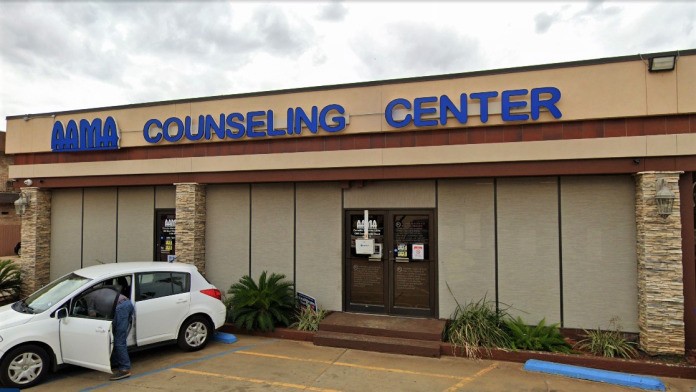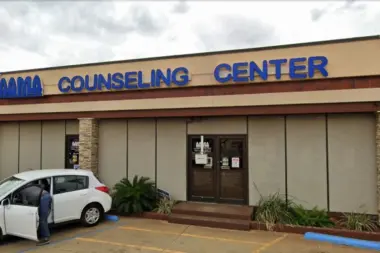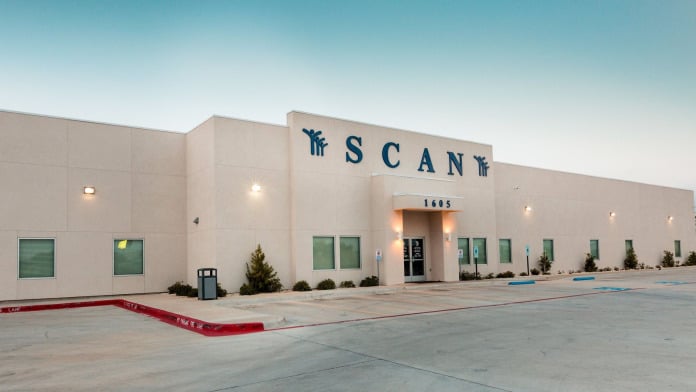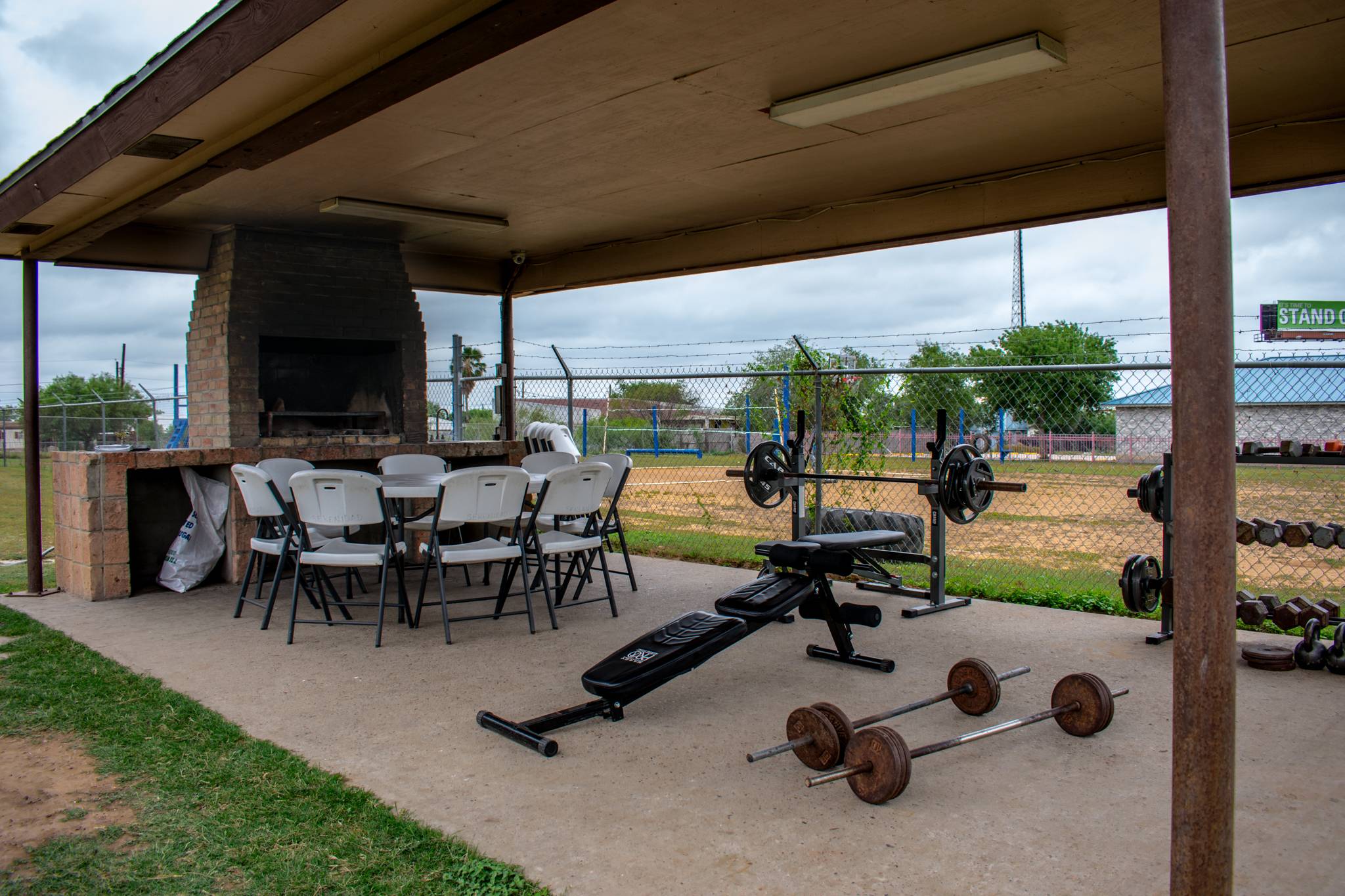My worries are these #1 if we ever get Kicked out and if we really want to continue re-entering again, is that we have to go back to drug dealers to continue buying heroin that is now way more dangerous due to them adding it into heroin. And of course we have to be a active ...
About AAMA – Concilio Hispano Libre
In Laredo, Texas, AAMA – Concilio Hispano Libre is a trusted part of the Spanish speaking community. As part of the Association for the Advancement of Mexican Americans (AAMA) Prevention and Counseling Services, they provide medication assisted treatment (MAT) for adults experiencing opioid use issues.
A Legacy of Support in Laredo
The AAMA has been rooted in the Mexican American community since 1970. It began with a group of Houston-area students, teachers and businesspeople joining forces to address challenges impacting their community. Today, they’re one of the state’s largest addiction treatment and prevention providers, with several services available in Laredo.
In 1990, Concilio Hispano Libre opened in Laredo to help individuals through their MAT program. By 2020, they were helping about 240 people a day. Today, they see between 250 and 400 people each day. For many in Laredo’s Latino community, Concilio Hispano Libre provides a culturally sensitive, supportive environment that helps individuals take important steps toward recovery from opioid addiction.
Holistic Approach to Opioid Use Recovery
MAT is a proven addiction treatment for helping adults who are struggling with opioid addiction. Medications help you manage withdrawal symptoms and cravings, making the transition to sobriety more manageable. This is just one part of the treatment, though.
Counseling helps you figure out the underlying causes of addiction. You really can’t do one without the other. Your counselor is a big part of the support system you need to heal and regain control of your life.
Something that really stands out about their program is that they don’t only help you as an individual. They realize that addiction affects the whole family. So, you and your family can meet with licensed family counselors to help everyone heal and move forward.
Along with MAT, you’ll get life skills training to help you manage things like finances, relationships and finding a job. You’ll also have access to peer recovery support groups, where you can connect with others who’ve faced similar challenges and share experiences to stay motivated in your recovery.
Latest Reviews
Rehab Score
Gallery


Other Forms of Payment
Medicaid is a state based program that helps lower-income individuals and families pay for healthcare. Medicaid covers addiction treatment so those enrolled can use their coverage to pay for rehab. When a program accepts Medicaid the client often pays very little or nothing out of their own pocket.
Self-pay involves paying for treatment out of your own pocket. You can use savings or credit, get a personal loan, or receive help from family and friends to fund your treatment. If you don't have insurance or your insurance plan doesn't cover a specific program, self-pay can help ensure you still get the care you need.
Financial aid can take many forms. Centers may have grants or scholarships available to clients who meet eligibility requirements. Programs that receive SAMHSA grants may have financial aid available for those who need treatment as well. Grants and scholarships can help you pai for treatment without having to repay.
Sliding scale payments are based on a client's income and family size. The goal is to make treatment affordable to everyone. By taking these factors into account, addiction recovery care providers help ensure that your treatment does not become a financial burden to you or your family, eliminating one barrier to care.
Addiction Treatments
Levels of Care
Outpatient Programs (OP) are for those seeking mental rehab or drug rehab, but who also stay at home every night. The main difference between outpatient treatment (OP) and intensive outpatient treatment (IOP) lies in the amount of hours the patient spends at the facility. Most of the time an outpatient program is designed for someone who has completed an inpatient stay and is looking to continue their growth in recovery. Outpatient is not meant to be the starting point, it is commonly referred to as aftercare.
Drug and alcohol addiction often takes a heavy toll on one's body. Over time, a physical dependence can develop, meaning the body physiologically needs the substance to function. Detox is the process of removing drugs and/or alcohol from the body, a process that can be lethal if mismanaged. Medical detox is done by licensed medical professionals who monitor vital signs and keep you safe, healthy, and as comfortable as possible as you go through detox and withdrawal.
Intensive Outpatient Programs (IOP) are for those who want or need a very structured treatment program but who also wish to live at home and continue with certain responsibilities (such as work or school). IOP substance abuse treatment programs vary in duration and intensity, and certain outpatient rehab centers will offer individualized treatment programs.
Treatments
The goal of treatment for alcoholism is abstinence. Those with poor social support, poor motivation, or psychiatric disorders tend to relapse within a few years of treatment. For these people, success is measured by longer periods of abstinence, reduced use of alcohol, better health, and improved social functioning. Recovery and Maintenance are usually based on 12 step programs and AA meetings.
During rehab in Texas, you'll deal with underlying issues that contribute to addiction. By addressing these challenges and learning healthy ways to cope with them, you'll develop strategies that help you live a drug-free lifestyle.
Opioid rehabs specialize in supporting those recovering from opioid addiction. They treat those suffering from addiction to illegal opioids like heroin, as well as prescription drugs like oxycodone. These centers typically combine both physical as well as mental and emotional support to help stop addiction. Physical support often includes medical detox and subsequent medical support (including medication), and mental support includes in-depth therapy to address the underlying causes of addiction.
Substance rehabs focus on helping individuals recover from substance abuse, including alcohol and drug addiction (both illegal and prescription drugs). They often include the opportunity to engage in both individual as well as group therapy.
Programs
Adult rehab programs include therapies tailored to each client's specific needs, goals, and recovery progress. They are tailored to the specific challenges adult clients may face, including family and work pressures and commitments. From inpatient and residential treatment to various levels of outpatient services, there are many options available. Some facilities also help adults work through co-occurring conditions, like anxiety, that can accompany addiction.
Young adulthood can be an exciting, yet difficult, time of transition. Individuals in their late teens to mid-20s face unique stressors related to school, jobs, families, and social circles, which can lead to a rise in substance use. Rehab centers with dedicated young adult programs will include activities and amenities that cater to this age group, with an emphasis on specialized counseling, peer socialization, and ongoing aftercare.
Clinical Services
Group therapy is any therapeutic work that happens in a group (not one-on-one). There are a number of different group therapy modalities, including support groups, experiential therapy, psycho-education, and more. Group therapy involves treatment as well as processing interaction between group members.
Accreditations

The Substance Abuse and Mental Health Services Administration (SAMHSA) is a branch of the U.S. Department of Health and Human Services. Established in 1992 by congress, SAMHSA's mission is to reduce the impact of substance abuse and mental illness on American's communities.
SAMHSA Listed: Yes

